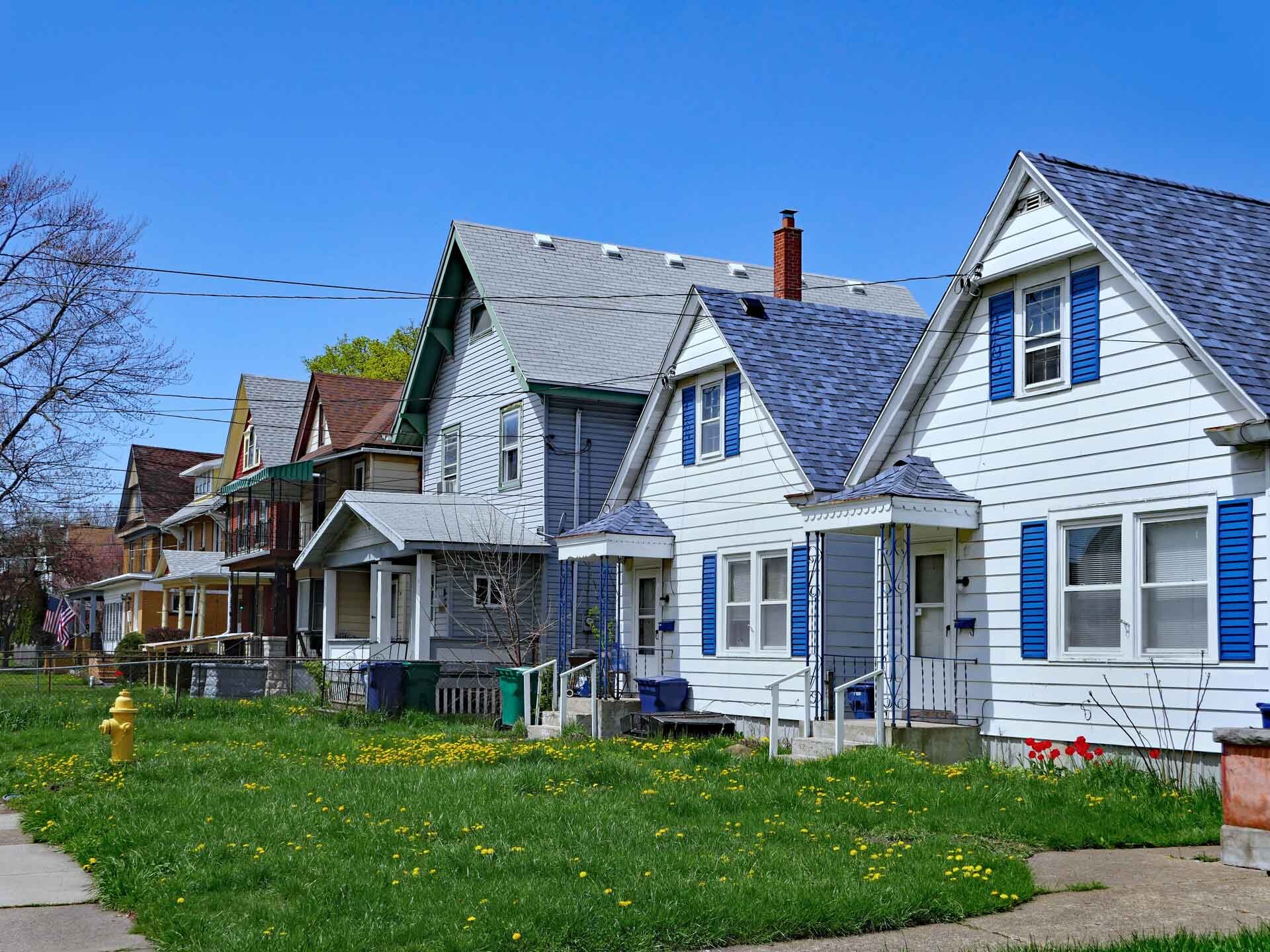Foreclosure occurs when a homeowner is unable to make their mortgage payments on time and has no way to catch up on the missed payments. Because a mortgage is a legal agreement between you and your lender, once you’ve defaulted on the loan, the lender can auction off the property to cover any outstanding debts, leaving you homeless and with terrible credit.
No one wants to receive a notice of foreclosure and yet, in a nationwide study, nearly 1 million Americans were afraid of losing their homes (U.S. Census Bureau Household Pulse Survey, fielded from July 27 to Aug. 8, 2022). Foreclosure can occur from a number of reasons, including:
- Job loss and loss of income
- Divorce or death of a spouse or partner
- Mounting debt, including medical and credit cards
- Moving without being able to sell the home
- Natural disaster
Revival Homebuyers is a local company operating in Massachusetts that has built their business by buying distressed houses and properties in the area for cash. They promise competitive cash offers without the hassle of dealing with real estate agents, title companies, traditional bank financing, and more!
What is Foreclosure?
Let’s say you or your spouse recently experienced a job loss or a significant reduction in income. Your regular bills, including your mortgage payment, don’t pause for financial hardship, and suddenly you find yourself unable to cover all your obligations. Even if you secure new employment, the debt accumulated during this gap may be overwhelming, making it difficult to catch up in a reasonable timeframe. When this happens, lenders typically initiate the foreclosure process to recover the owed funds.
How Long Do You Have To Get Out of Your House After Foreclosure?
Foreclosure usually follows a series of steps: missed payments, public notice, foreclosure filing, auction, and finally, eviction. The timeline for each stage depends on your state’s regulations and whether the foreclosure is judicial or non-judicial. In many cases, homeowners may have anywhere from four months to nine months from the first missed payment before the bank can finalize the foreclosure.
During this period, your lender will likely contact you through multiple channels—phone calls, emails, and certified letters—to inform you of your options and the next steps in the process. Understanding these timelines can give you a clearer picture of your available options, such as loan modifications, short sales, or selling directly to professional cash buyers who can act quickly to prevent foreclosure.
The Different Types of Foreclosure
There are two different types of foreclosure you may experience: nonjudicial foreclosure or judicial foreclosure.
What Is Non-Judicial Foreclosure?
A non-judicial foreclosure is often considered the fastest and most cost-effective method for a lender to recover their investment when a homeowner in Massachusetts falls behind on payments. Unlike judicial foreclosure, it does not require a court proceeding, which can save both the lender and the homeowner time and legal expenses. This process relies on a “power-of-sale” clause included in the deed of trust, allowing the lender to take back the property and sell it to recover the unpaid debt.
Not every state permits non-judicial foreclosure, but in states that do, lenders frequently choose this route because it avoids the complexity and costs of court involvement, while still ensuring the lender can recoup the owed funds efficiently.
What Is Judicial Foreclosure?
Judicial foreclosure is the court-driven process required in certain states for a lender to repossess a home. In this scenario, the lender must file a lawsuit and request a court order granting permission to sell the property. Homeowners in Massachusetts will receive a formal notice and must respond appropriately; failure to respond can result in the lender automatically winning the case and moving forward with the foreclosure sale.
Once the home is sold at auction, the sale often does not reflect the market value of the property. Even if the home is in excellent condition and worth significantly more than the remaining mortgage balance, homeowners may still be responsible for the shortfall, known as a deficiency judgment. This difference can run into tens or even hundreds of thousands of dollars, making judicial foreclosure a lengthy, stressful, and expensive process for both parties.
Because of the time, expense, and legal hurdles associated with judicial foreclosure, most lenders prefer non-judicial foreclosure whenever it is legally permissible. For homeowners, understanding the distinction between judicial and non-judicial foreclosure can help in planning a strategy to protect their finances and explore alternative options, like working with professional cash buyers who can provide a fast, fair, and hassle-free sale.
Get an offer today, sell in a matter of days.
How to Sell Your House Before Foreclosure in Massachusetts
Let’s break down a few ways you can sell your house, depending on your time frame and situation:

Hire A Real Estate Agent
The instinct for most homeowners is to call a local real estate agent when selling a property. While this is a traditional route, there are pros and cons—especially if you’re in a time-sensitive or financially strained situation, such as foreclosure. A skilled agent can list your home on the MLS, coordinate open houses, and manage showings. However, all that effort comes with a cost: agent commissions, typically ranging from 3% to 6% of the sale price. For homeowners already struggling with debt or facing the risk of foreclosure, giving up thousands of dollars in commissions may not be feasible.
Another challenge with hiring an agent is the uncertainty of timing. Even with a ready buyer, traditional closings often take 30 to 60 days—or longer. If you are racing against an auction or eviction date, waiting weeks for a sale to finalize could jeopardize your ability to keep some control over the situation.

Short Sale
When your mortgage balance exceeds the current market value of your home, a short sale may be necessary. For example, if you owe $200,000 but your home is worth $150,000, you’ll need lender approval to sell. While a short sale can help avoid foreclosure, it is rarely fast or simple.
You’ll need to document financial hardship with items such as W-2s, medical bills, or proof of income loss. The lender will carefully review your situation and may only approve the short sale if they determine the hardship is significant and unlikely to change. Even after approval, you’ll still need a specialized real estate agent and possibly an attorney, both of whom will charge fees similar to a standard sale.
Although lenders benefit by recouping some of the mortgage balance without a full foreclosure, homeowners may experience long-term credit implications. Short sales can remain on your credit report for 5 to 7 years, affecting your ability to secure loans, credit cards, or even rent a new home—similar to the impact of bankruptcy.

Sell Your House AS-IS to A Cash Buyer
If time is critical and foreclosure is imminent, a direct sale to a cash buyer can provide a practical, stress-free solution. Unlike traditional sales or short sales, selling to a trusted cash investor allows you to bypass many of the hurdles that slow the process.
Key advantages include:
- Fast and straightforward closing: Many cash buyers can close in a matter of days.
- No commissions or hidden fees: You receive the full agreed-upon amount for your property.
- Skip marketing and showings: No need to list the house, host open houses, or wait for a buyer to secure financing.
- Sell as-is: No repairs, renovations, or cleaning required.
Selling your home as-is to a direct cash buyer can prevent foreclosure, reduce financial stress, and potentially allow you to walk away with enough funds to address outstanding debts. It’s a practical, quick, and transparent way to regain control of your financial future and move forward without the burden of monthly mortgage payments or looming auction deadlines.
Can You Stop Foreclosure Once it Starts?
Pay Off Your Loan & Fees
Facing mounting debt while your income remains the same can feel overwhelming. If you’re determined to stop foreclosure and regain control of your finances, it’s time to explore practical strategies to reduce what you owe. Start by evaluating your assets: can you sell unused items, liquidate investments, or ask trusted family or friends for a temporary loan or gift?
Creating a detailed plan with the help of a financial advisor or credit counselor can help you restructure your budget and prioritize payments, allowing you to chip away at your debt more effectively. Combining multiple strategies—partial payments, asset liquidation, and temporary support from friends or family—can help you stabilize your financial situation and reduce stress as you work toward keeping your home.
Declare Bankruptcy
Bankruptcy can be a last-resort solution to stop foreclosure, but it comes with serious implications. Filing for bankruptcy involves navigating a complex legal process, typically requiring the assistance of a specialized bankruptcy attorney. If approved, you may be required to complete a government-mandated credit counseling program.
Bankruptcy is also recorded on your credit report for up to 7 years, affecting your ability to obtain new loans, apply for credit cards, or even rent a property. While it can temporarily halt foreclosure and provide a fresh start, it’s important to fully understand how this decision may impact your long-term financial health.
The Homeowner Affordability and Stability Plan (HASP)
If your monthly debt exceeds your income, you might qualify for the Homeowner Affordability and Stability Plan (HASP). This government program is designed for homeowners at risk of foreclosure due to limited income, offering a way to restructure mortgage payments into a more manageable schedule.
HASP can help reduce your monthly payment, lower your interest rate, or extend the loan term so that it aligns with your current financial capabilities. By taking advantage of programs like HASP, you can avoid foreclosure while creating a sustainable path toward financial stability.
Sell Your House Fast to a Cash Buyer
Are you ready to sell your house but don’t have the luxury of waiting 30+ days for a traditional closing? Is a short sale sounding like a quick path to damaging your credit? Do you want to pay off your debts and relieve yourself of bank pressure without delay? Selling to a direct home buyer or cash investor may be the solution you’ve been looking for.
When you partner with a reputable investor in your area, you’ll find a team ready to purchase your home as-is with cash in hand. This eliminates the waiting game, the stress of showings, and the uncertainty of foreclosure or auction timelines. In just a matter of days, you can sell your property, protect your credit, and regain peace of mind.
While selling to a trusted cash investor may not always yield the full market value of your home, the benefits of a fast, hassle-free transaction often outweigh potential losses. There are no commissions, no inspection contingencies, and no costly repairs required. Plus, because a cash buyer can close quickly, you often have the advantage of completing the sale before the bank can auction off your home, allowing you to control the outcome instead of leaving it in the hands of foreclosure proceedings.
In short, selling to a cash investor provides speed, simplicity, and certainty—a smart choice for homeowners looking to avoid foreclosure, save time, and move forward financially.
We Buy Houses in Foreclosure & Pre-foreclosure–
Get Your Offer Today!
Does the idea of finally walking away from a property without the storm cloud of foreclosure hanging over your head? Contact a real professional at Revival Homebuyers to find out more and get a fair cash offer for your property today.

